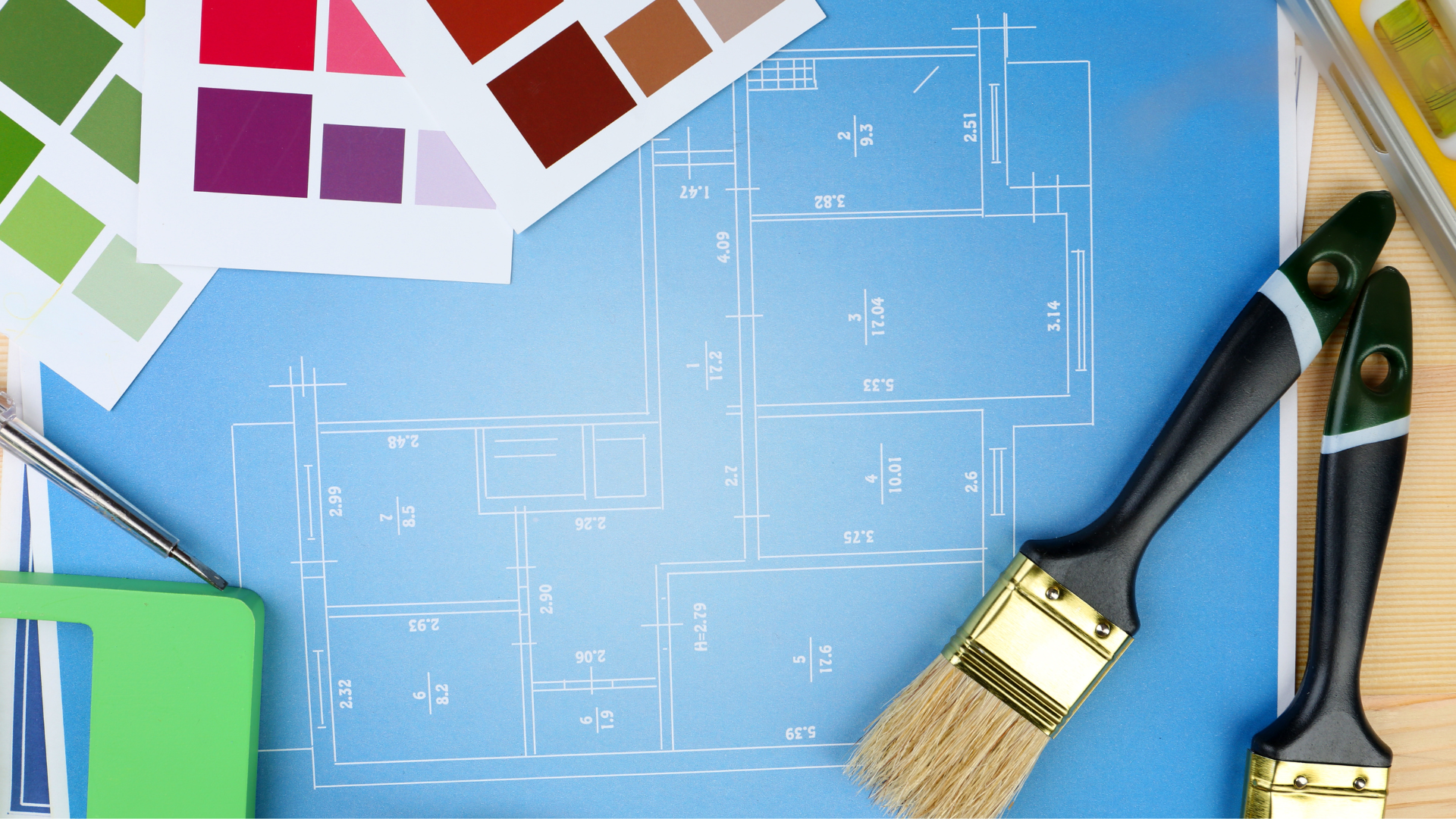- What Are Buy-to-Sell Mortgages?
- When Is A Buy-To-Sell Mortgage A Good Idea?
- Types of Buy-To-Sell Mortgages
- What Are The Interest Rates?
- How Much Deposit Do I Need for a Buy-to-Sell Mortgage?
- Donât Forget The Fees and Other Expenses
- Pros and Cons of Buy-to-Sell Mortgages
- Who Offers Buy-To-Sell Mortgages?
- Alternatives To Buy-To-Sell Mortgages
- Key Takeaways
- The Bottom Line
Buy-To-Sell Mortgages: How To Finance A House Flip?

Buying low, renovating efficiently, and selling high is a tempting formula. It stands out because, unlike other investments, flipping houses can pocket you quick returns, often in just a few months.
If you’re considering this profitable route, financing your flip is key. And here’s where buy-to-sell mortgages come in– a short-term loan for quick property flips.
This article explains everything you need to know about securing the right buy-to-sell mortgage in the UK.
What Are Buy-to-Sell Mortgages?
Buy-to-sell mortgages are designed for short-term property investments. These mortgages are ideal if you plan to sell the property soon after buying it.
They’re quite different from traditional residential mortgages, which are typically spread over many years.
With a buy-to-sell mortgage, you usually settle the full amount in a shorter period, often within 12 to 24 months.
This setup means you’re not paying month by month but rather paying back the entire loan, plus interest, at the end of the term.
When Is A Buy-To-Sell Mortgage A Good Idea?
Buy-to-sell mortgages can be a good option for investors who want to act quickly and potentially make a profit by renovating and selling a property fast.
Here are some typical reasons why speed might be more important than price:
- You spot a property at auction needing work but with great profit potential.
- You inherit a property that requires renovation before selling.
- You want to use your renovation experience to capitalise on a good buying opportunity.
- You found a property listed below market value – this could be due to probate, repossession, or the owner needing a fast cash sale.
This isn’t an exhaustive list. You might have other reasons, and your situation is unique.
Remember, careful planning and thorough research are key before taking a chance on a property, even if it seems like a great deal.
Types of Buy-To-Sell Mortgages
These mortgages come in different types to fit your investment plan. Here’s a breakdown of the most common types:
Short-Term Loan (Bridging Loan)
A bridging loan is a short-term loan, usually lasting up to a year, ideal for situations where speed is critical. This helps win bids at auctions where traditional mortgages might be too slow.
You can buy properties that wouldn’t qualify for a regular mortgage, but beware of higher interest rates and a deposit requirement.
Do your research and prepare a solid plan to repay the loan quickly, as lenders typically require this for approval.
Refurbishment Finance
Refurbishment finance helps you buy the property and cover renovation costs in one go. This short-term mortgage lets you finance both the purchase and renovation before selling.
Here’s the upside: you might be able to borrow more than with a regular mortgage because the loan is based on the expected value after the renovations.
Remember, it’s still a short-term loan with higher interest rates, and you’ll need a clear renovation plan outlining repayment.
Flexible Buy-to-Let Mortgage
A flexible buy-to-let mortgage is similar to a standard one but with a key perk: lower or even no early repayment charges. This allows you to rent out the property for a short while before selling without penalty fees.
This flexibility is useful if you need extra time to find a buyer or want some rental income while waiting to sell. But, be aware that these mortgages often come with higher interest rates than standard buy-to-let options.
What Are The Interest Rates?
Interest rates on buy-to-sell mortgages typically range from around 0.50% to 1.50% per month. This translates to a yearly range of 6% to 18%.
However, the exact rate you’ll be offered depends on several factors, including:
- Your steady income
- Loan-to-value ratio (LTV) or how much you need to borrow
- Your credit history
- Your income and expenses (debt-to-income ratio)
- The size of your deposit
- Type of property you’re eyeing
- Your lender
Buy-to-sell mortgages are shorter than traditional mortgages, so the interest rate might seem higher. However, because you’re paying it back faster, you might pay less interest overall.
How Much Deposit Do I Need for a Buy-to-Sell Mortgage?
Unlike traditional residential mortgages with a lower deposit requirement (often around 10-20%), buy-to-sell mortgages typically require a larger upfront investment.
This is because lenders see them as higher risk due to the shorter repayment window and potential for unforeseen renovation costs.
Generally, expect a deposit requirement of 25% to 30% of the property’s value. For a cheaper rate, aim to have at least 40% of the purchase price.
This is a general range, and the exact amount you’ll need can vary depending on:
- Your chosen lender
- Your property experience
- The amount of money you need to borrow (or loan-to-value)
Note: Deposit isn’t the only upfront cost. There are other fees and expenses you need to factor into your budget…
Don’t Forget The Fees and Other Expenses
To avoid any surprises down the line, consider these costs:
- Arrangement Fees – These are fees charged by the lender for setting up the mortgage. They can vary depending on the lender but typically range from £1,000 to £2,000 or a percentage of the loan amount (around 1-2%). Be sure to compare arrangement fees from different lenders to get the best deal.
- Valuation Fee – Similar to a traditional mortgage, you’ll need a professional valuation of the property to determine its market value. This fee typically ranges from £150 to £500 depending on the property’s size and location.
- Solicitor Fees – Legal fees associated with conveyancing (transferring ownership) are unavoidable. Expect to pay between £1,000 to £3,000, depending on the complexity of the transaction and the solicitor’s experience.
- Broker Fees – Though not mandatory, using a mortgage broker can save you time and money by finding the best deal for your circumstances. Broker fees can vary, often ranging from 0.5% to 1% of the loan amount or a flat fee of around £500.
- Exit Fees – Some lenders charge exit fees for early repayment of the mortgage. Since buy-to-sell mortgages are short-term, this might not be a major concern, but it’s worth checking the terms beforehand. These fees can vary but typically range from 1% to 3% of the remaining loan balance.
- Building Survey Fee (Optional) – While not essential for every property, a building survey can reveal potential problems that might impact renovation costs or the property’s value. Costs can vary depending on the property size and complexity, but generally start around £500 and can go up to £1,500 or more for larger or complex properties.
- Contingency Fund – Unexpected renovation costs are a real possibility. Plan for a buffer in your budget to cover these surprises. Aim for a contingency fund of at least 5% to 10% of the estimated renovation costs.
- Auction Fees – If you’re buying at auction, factor in auction house fees on top of the purchase price. These fees can vary depending on the auction house but typically range from 1% to 2.5% of the purchase price. There might also be additional fees for legal packs and catalogues.
- Renovation Cost – This can vary widely depending on the property’s condition, the scale of your project, and the quality of materials used. You can get quotes from several contractors for accurate renovation cost estimates specific to your project.
Pros and Cons of Buy-to-Sell Mortgages
While this can be a tempting option for investors looking to flip properties quickly and potentially make a profit, there are important factors to consider.
Pros
- Get cash fast to secure properties needing work before they’re gone.
- Buy low, renovate, and potentially make a good profit by selling high.
- Repay these loans in one lump sum at the end. Sell quickly and you might even avoid early repayment charges.
- Consider a wider range of property types with buy-to-sell mortgages.
Cons
- Brace yourself for a larger deposit and sky-high interest rates compared to regular mortgages.
- Buy-to-sell mortgages often operate outside FCA regulations. You might have far less protection if things go wrong.
- Finding a good deal is a challenge as these mortgages are rare, so expect to hunt around for a lender willing to offer one.
- The tight deadline to sell puts immense pressure on you. You’ll need to find a buyer fast to avoid penalties or worse, defaulting on the loan.
Who Offers Buy-To-Sell Mortgages?
Buy-to-sell mortgages are a niche product compared to traditional residential mortgages. Fewer lenders offer them, including:
- Precise Mortgages
- United Trust Bank
- Octopus Property
- Roma Finance
As mentioned previously, buy-to-sell mortgages often operate outside FCA (Financial Conduct Authority) regulations.
This means they might not be readily advertised or easily found through traditional mortgage comparison websites. To get more information, it’s wise to speak with a good mortgage advisor.
Alternatives To Buy-To-Sell Mortgages
If buy-to-sell mortgages are not the right choice for you, there are some other options:
- Secured Loans. These loans are backed by something you own, like your house, so they often have lower interest rates. But if you can’t repay the loan, you risk losing your home.
- Remortgage to Release Equity. This lets you unlock some of the money that’s tied up in your current property. It’s usually cheaper than other ways of borrowing money against your home.
- Cash Purchase. If you have the money saved up, buying with cash can be simple. You won’t need a mortgage and could negotiate a better deal and complete the purchase faster. But you’ll need a big chunk of money upfront.
Key Takeaways
- Buy-to-sell mortgages are for short-term property investments, usually paid back in full within 12 to 24 months. They’re ideal for quick flips, like renovating auction properties or inherited homes for profit.
- Interest rates can be high, typically 0.50% to 1.50% per month, but since they’re short-term, overall interest might be less.
- A larger deposit, usually 25% to 30%, is needed due to higher risk.
- Don’t forget extra costs like arrangement and valuation fees, and consider a contingency fund for unexpected expenses.
- Pros include quick cash and potential profit; cons include high-interest rates and less regulation.
- Few lenders offer these mortgages, with names like Precise Mortgages and United Trust Bank being examples.
- Alternatives include secured loans, remortgaging for equity release, or cash purchases for those with significant savings.
The Bottom Line
Before you even think about applying for a mortgage, do your homework on the property you’re eyeing up. Know the market well and be sure the numbers stack up.
You’ll also need to gather key documents like bank statements and outline a clear plan for repaying the loan, typically by selling the property.
Consulting with a seasoned mortgage broker can make this whole process smoother. They’re your go-to for finding the right lender and getting your application sorted fast, especially since not all lenders are in the buy-to-sell game.
Feeling a bit lost on where to start? No worries, we’re here to help. Drop us a line, and we’ll put you in touch with a trusted mortgage advisor who can tailor advice just for you.
Get Matched With Your Dream Mortgage Advisor...

Frequently asked questions
Is it possible to get a buy-to-sell mortgage even with bad credit?
Your chance of getting a buy-to-sell mortgage with bad credit is still there. While your credit score is part of the picture, lenders also look at your income and how well you handle your finances.
What’s more, some short-term bridging finance options might not weigh your credit history as heavily.
They focus more on a solid exit plan rather than just your monthly payment track record.
So, even with bad credit, there might be lenders out there for you, though you might see higher rates.




